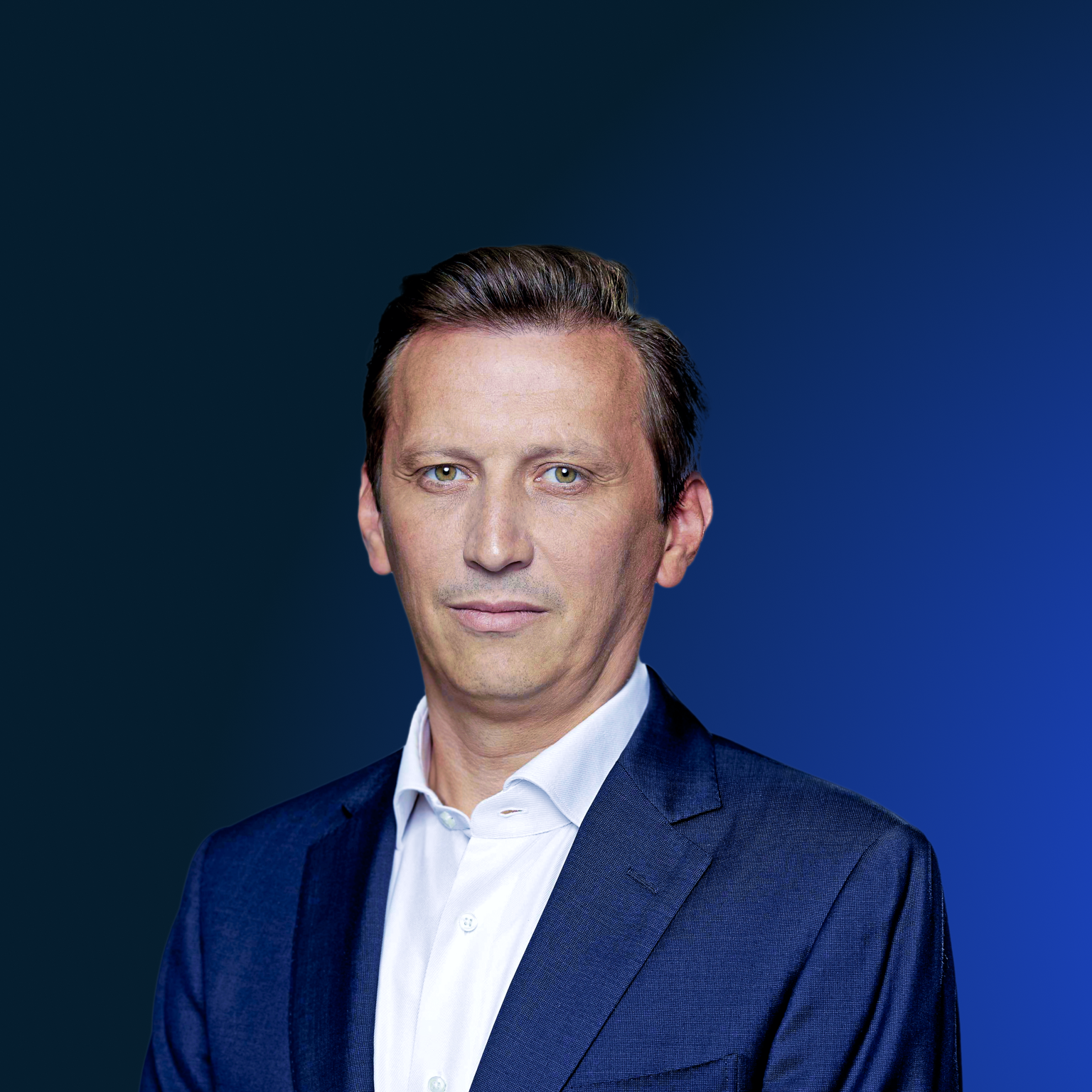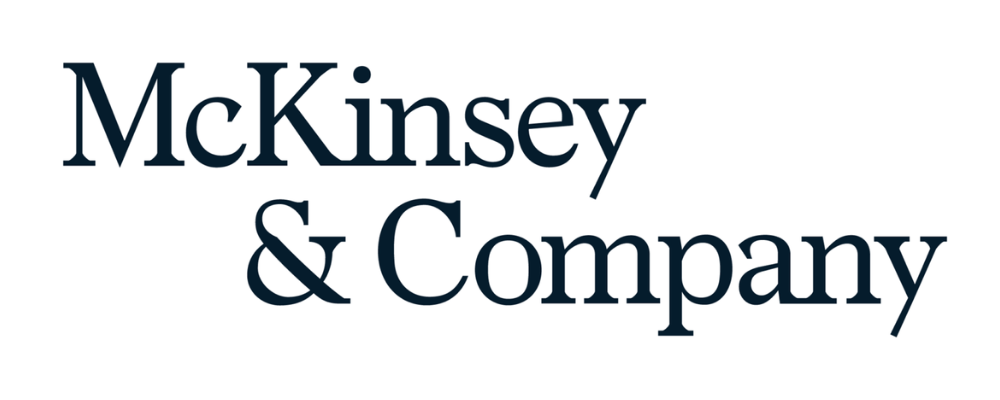
This year will be challenging. We expect the increase in costs to outgrow the increase in revenues.
Lionel Souque, CEO, Rewe Group
McKinsey: What was 2023 like for Rewe? What are the things that stand out?
Lionel Souque: It was quite a good year, especially from a sales perspective, although that was partly driven by inflation, not necessarily by volume growth. Penny, our discount business, did especially well in 2023—even better than our supermarkets. This is partly due to the continuing price sensitivity of consumers.
A major milestone in 2023 was that we put an end to printed leaflets. We were the first food retailer in Europe to do that. We used to print more than a billion leaflets every year in Germany alone, and we stopped doing that as of July 1, 2023. Now all our leaflets are digital, and this hasn’t damaged our sales. We’re saving more than 70,000 tons of paper as well as CO2 emissions. Of course, we’re also saving money that we’re reinvesting in other marketing channels, such as radio and TV.
McKinsey: Would you encourage other players to do the same?
Lionel Souque: Many found our decision risky. After all, the leaflet has been by far the most important advertising medium in the retail industry for decades. However, we can only improve in terms of sustainability if we rethink, question the old, and show courage. I am proud that we have been a first mover in order to improve our ecological footprint. At Rewe, we have a tradition of leading the way toward more sustainable practices. In 2016, for example, we were the first major food retailer in Germany to abandon plastic bags.
McKinsey: Looking ahead to 2024, how do you think it will be different from 2023?
Lionel Souque: This year will be challenging. We expect that the increase in costs will outgrow the increase in revenues in 2024, especially regarding personnel costs and rents, because wage agreements and indexed rents reflect inflation with a time delay. At the same time, food inflation is already declining throughout Europe, especially in Eastern Europe. In fact, some countries there have entered a period of deflation. As a result, prices are going down while some sourcing costs remain high. That will be the big challenge for 2024. On the bright side, we expect fewer supply chain disruptions than in the past few years, so our shelves should be well stocked.
McKinsey: What is your expectation for online grocery in 2024 and beyond? Will you keep investing in e-grocery?
Lionel Souque: I still expect that e-grocery will keep growing—but much slower than a lot of people expected. In addition, the low average price per item in Germany makes it hard to turn a profit with e-grocery. However, we do not only focus on our online delivery. That’s why we also focus part of our investments on click and collect. We believe that this might be a very economically viable model in the long run. Home delivery is complex and costly; many customers prefer picking up their orders in their own time to waiting at home for the delivery to arrive. In France, pickup is already the biggest segment of the online grocery market. Additionally, we are selling wine and spirits online through two dedicated shops, Weinfreunde and Kölner Weinkeller, because we think these categories are particularly well suited for e-commerce.
McKinsey: What other growth opportunities do you pursue beyond your core business?
Lionel Souque: One of our fastest-growing brands is ZooRoyal, a pet product retailer. That’s a booming market. Unlike Rewe, ZooRoyal started online, but we are opening brick-and-mortar stores as well. We have also replaced private label pet food in Rewe stores with ZooRoyal products. Beyond that, we are offering some of our e-commerce, fulfillment, and payment solutions to other companies, and we are investing in food tech. But these are small ventures at this point in terms of sales and profits.
Most manufacturers spend the lion’s share of their retail media budget on e-commerce platforms, but we have a different proposition, driven by digital technology at the point of sale.
McKinsey: What about retail media?
Lionel Souque: That’s a massive market. Some experts say it will be worth €25 billion in 2026, twice what it was in 2023. Most manufacturers spend the lion’s share of their retail media budget on e-commerce platforms, but we have a different proposition, driven by digital technology at the point of sale. We already have more than 3,000 screens in our Rewe and Penny stores that can display ads. That’s about as close as you can get to the purchase decision, and manufacturers like that. We have a dedicated team that has been developing this kind of technology for several years, and I am convinced that it will keep growing.
McKinsey: Sustainability is a concern for a growing share of consumers. How does Rewe respond to that?
Lionel Souque: It’s not only one of our strategic priorities; it’s also in our DNA. Rewe started as a buying cooperative almost 100 years ago, so the social aspect of sustainability was there right from the start. More recently, we have added the environmental aspect. In 2008, we switched all our stores in Germany to green energy. A few years ago, well before the energy crisis, we invested in an offshore wind energy plant that will launch in 2025. The green energy we will receive from the wind energy plant reflects nearly 20 percent of Rewe Group’s total energy consumption. Last year, our German divisions Rewe and Penny joined the Science Based Targets initiative, and the rest of the group will follow in 2024. Our ambitious goal is to achieve net-zero emissions as a group by 2050. The focus here is not only on drastically reducing emissions in our own activities but also in our supply chains.
In job interviews, that’s one of the first questions many applicants ask: What are you doing for the environment?
Sustainability matters to our customers, and it matters to current and future employees as well. In job interviews, that’s one of the first questions many applicants ask: What are you doing for the environment? And investors ask the same question. That’s why we put out a sustainability-linked bond last year. In Germany, we work with the Nature and Biodiversity Conservation Union, a nongovernmental organization for nature conservancy, to restore moors, which can absorb high amounts of CO2. We will have solar panels on up to 1,000 roofs of stores and warehouses to generate power on-site, and we have already built hundreds of stores that conform to green building standards, with a much lower energy footprint than traditional stores. In 2024, we will open the 400th store of this type.
McKinsey: What about agriculture? How do you think your relations with farmers will evolve in the coming years, especially in terms of sustainable practices?
Lionel Souque: We can and want to play an active role in that, which is why we always seek direct dialogue and joint solutions when working together. But in most cases, we don’t have direct relations with those farmers. We as food retailers are only a small part of the overall system. Manufacturers are much more powerful in that respect because they directly negotiate with the producers or farmers.
There are only a few cases where we directly work together with farmers. These are often only small-scale arrangements, in which a farm is supplying a handful of nearby stores. These arrangements are typically very beneficial for farmers because there’s a specific customer segment prepared to pay higher prices for local produce, meat, and dairy.
To promote sustainable agriculture at scale and reduce Scope 3 emissions of greenhouse gases, we have established a competence center for agriculture that pools the expertise of farmers, scientists, policymakers, and retailers. The ultimate aim is to reduce the climate impact of the entire supply chain, from farm to table.
Retail can be a very top-down industry, but we want Rewe to be different. We want it to be a place of respect, appreciation, and empowerment.
McKinsey: To wrap things up, let’s talk about talent. Are you having trouble filling vacancies?
Lionel Souque: Last year, Rewe Group received more than 700,000 applications for 65,000 jobs in Germany alone, including temporary and part-time positions. That’s more than ten applicants per job. What comes after that is decisive. Attracting, developing, and retaining great people is therefore a strategic priority for us. In retail, great people are crucial. Of course, there are shortages in certain areas, such as IT and data analytics, where many employers are competing for the same pool of people. The good news is that we have a lot of exciting opportunities for these people because of the high potential for automation and data leverage in retail.
Once we hire someone, we do everything we can to retain them. We have very little fluctuation in central and managerial functions. In stores, it’s a bit higher. To improve retention, we talk to those who leave. We can see that topics such as the relationship to the direct manager play an important role when deciding to leave the company. This is something we take very seriously. We have set up an awareness program for managers at all levels, with coaching and dedicated training modules. Retail can be a very top-down industry, but we want Rewe to be different. We want it to be a place of respect, appreciation, and empowerment.
“Our firm is designed to operate as one—a single global partnership united by a strong set of values. We are equally committed to both sides of our mission: attracting and developing a talented and diverse group of colleagues and helping our clients create meaningful and lasting change.
From the C-suite to the front line, we partner with clients to help them innovate more sustainably, achieve lasting gains in performance, and build workforces that will thrive for this generation and the next.”
Please visit the firm link to site


